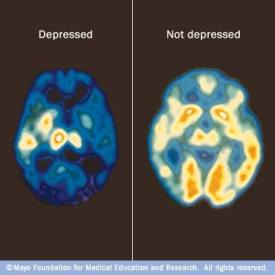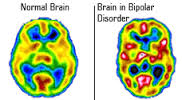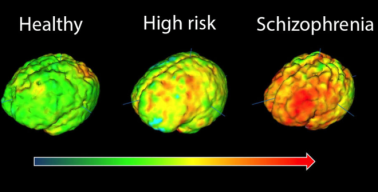Even though this is only my third post on this fairly new blog, I’m fully aware that this post won’t be anything regarding writing or story crafting. But it’s May, also considered “Mental Health Awareness Month”. Discussions about mental health and mental illnesses are important to me, so I wanted to take a few minutes and talk about it, to give my own input, and how to write (if you’re interested in writing) off a mental illness.
Background about Mental Illness
I shall give you a little background about mental health and Mental Health Awareness Month.
Since 1949, May has been considered and recognised as Mental Health Awareness Month. But before then, people have been struggling with a number of different mental illnesses, often times more than one simultaneously. Mental illnesses can affect every part of a person’s life; their physical health, their family lives, their schooling, their relationships, their work ethic. No two cases are alike. Everyone experiences their illnesses differently, even though there are many common symptoms that people share. The illness isn’t stagnant, either; the symptoms and conditions can change as time goes on.
Triadmentalhealth.org states, “Some of the more common disorders are: clinical depression, bipolar disorder, dementia, schizophrenia and anxiety disorders.” Depression and anxiety are probably the most common on this list. These illnesses impact millions of people every day.
Medication can also be an option to help treat it; in some cases, it might be mandatory. Instead or in addition to medication, some might seek therapy and/or support groups, to see if they have anything to help either cope or treat. Many depression and/or anxiety sufferers take the therapy route to get their thoughts off their chests for a way to feel better. In more extreme cases (and sometimes, by the patient’s own decision), patients may be sent to an institution, or a mental health hospital, where doctors can monitor their progress and their wellbeing.
Pictures of a Brain Suffering From…
Depression:
 (via mayoclinic.org )
(via mayoclinic.org )
Bipolar Disorder:
 (via icontrolmyhealth.org )
(via icontrolmyhealth.org )
Schizophrenia:
 (via bbc.com )
(via bbc.com )
My Own Input
While I haven’t been clinically diagnosed with anything (yet), I have my private suspicions about my own mental health. However, I have friends who have been diagnosed with such, so I am quite familiar with them and how they can affect the lifestyle.
Some days are better than others. Some days it feels like you can do anything. On good days, it’s sunny, puppies are running around, kittens are chilling on a space heater, ducklings are waddling towards you. Everything is okay. Other days, it can be the complete opposite; the sky is dark, it’s pouring rain, the previous warmth has disappeared. And other days can be a mix of the two, as well. It’s neither sunny nor storming, a possible breeze, dogs are trotting around slowly.
In my opinion, you have to take it one day, or one moment, at a time. Do you have things to do? Do what you can, and come back to the rest when you’re feeling better. Need to do said things? Take your time, at least. Don’t push too hard.
Writing About a Mental Illness
If you’re a writer, and you have the desire to write a character with a mental illness (that you don’t have, more importantly), it’s best to follow these steps beforehand.
1.) Do your research. This is probably the most important step on the list. Take some time to read about the illness you’re trying to write about. Whether it be from a medical website, from a friend, from your own experiences if you suffer from it, wherever. Just make sure the information is correct.
2.) Don’t diminish the illness. Many people will try and knock things like that down, saying things like, “It’s not that bad, don’t be sad all the time” or “Quit complaining about it”. Don’t write like that; there may be books about mental illnesses out there, but some will be like those complainers about the “complainers”.
3.) Don’t “oversell” the illness, either. Doing this can also fuel the “complainers” into doing what they do best. It can also make your writing seem unprofessional and childish.
Overall, the most important thing is to make sure that you have proper data from resourceful researching. If you suspect you may have a mental illness, at least talk to your doctor and see what they can do to get you tested and/or treated.


Allie, I love your blog post it sends a powerful message to the reader about the factors that go into a mental illness and how serious the disease is. The pictures you added are very compelling and really hit me hard. I love how your open about sharing your story to your readers. Your blog overall is very well thought out and professional and really makes me want to follow your posts.
LikeLiked by 1 person
Thank you! I’m glad you enjoyed reading it!
I tried to make the people who read this actually see what kind of impact mental illnesses can do, because not everyone likes to talk about it, or just bring up the outdated stigma into conversation.
LikeLike
I love your blog! I think it was very informative and had some interesting facts and pictures. I also love how you bring everything back to writing and talk about mental illnesses in books. I think your advice on how to write about mental illnesses was very helpful.
LikeLiked by 1 person
Thank you for reading! The whole point of this post was to be informative in more ways than one. Not a lot of books have the topic of mental illnesses, but some do, so that’s always cool. This is just my own interpretation about it, though, there’s a ton more opinions about it out there.
LikeLike
Wow! This is a beautifully transparent piece of who you are, Cazz, in the midst of a writing blog. I love how real you are here! As a teacher, it breaks my heart to see so many students, in particular, struggling with mental health issues. It can’t all be the homework that these mean teachers are assigning. I wonder what is the root of all of this. My own unscientific data reveals that more students than ever are being institutionalized for mental health issues. Is that because we have, as a society, removed the stigma associated with treatment, or are there more pressing stimuli affecting today’s youth? Either way, my heart breaks. 😦
LikeLike
I feel as if it’s a little mix of both. It’s happening more often as time progresses, I’m afraid, and there’s not a whole lot we can do about it except accept it and talk about if we need to. Thank you for reading!
LikeLiked by 1 person